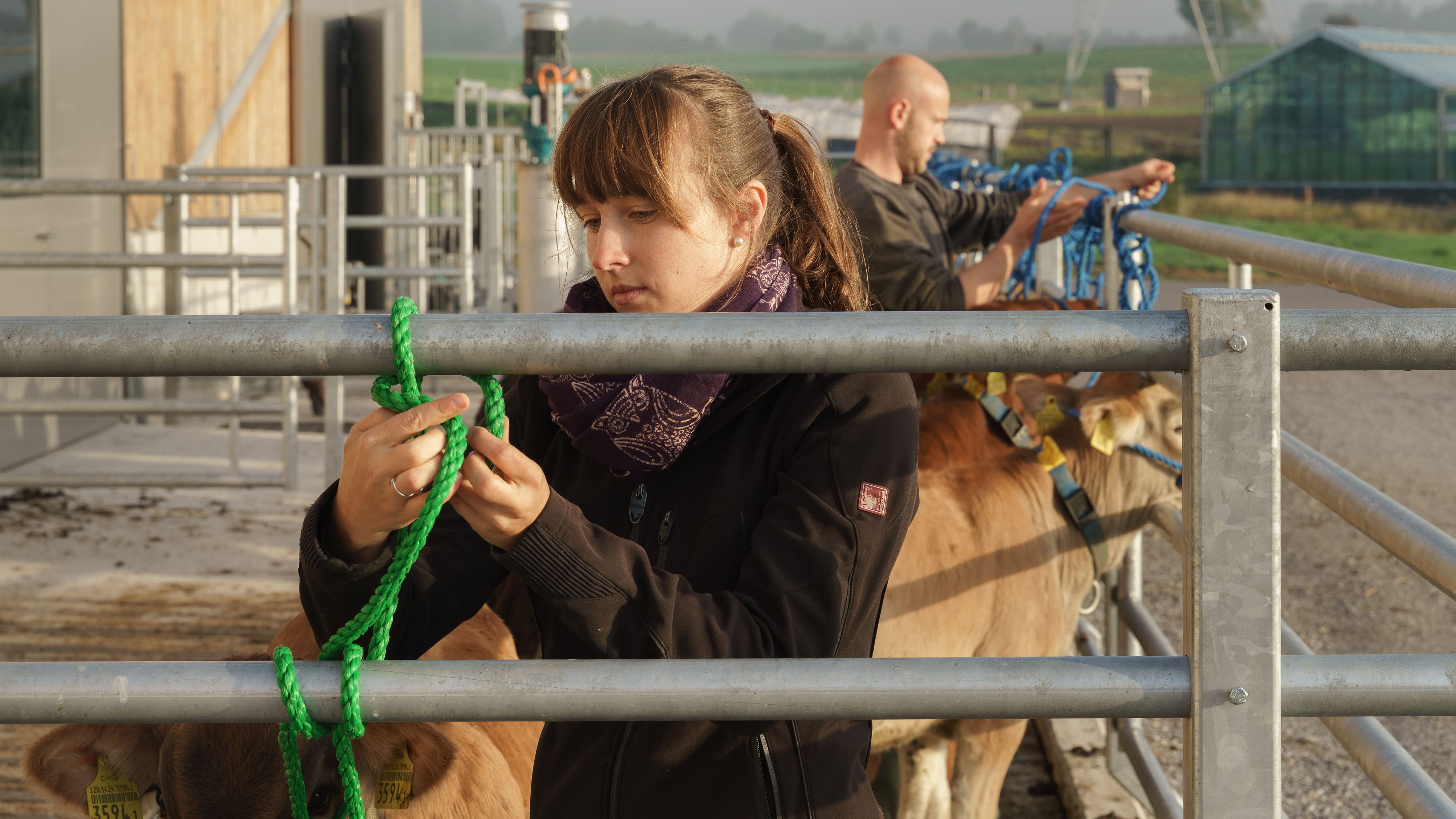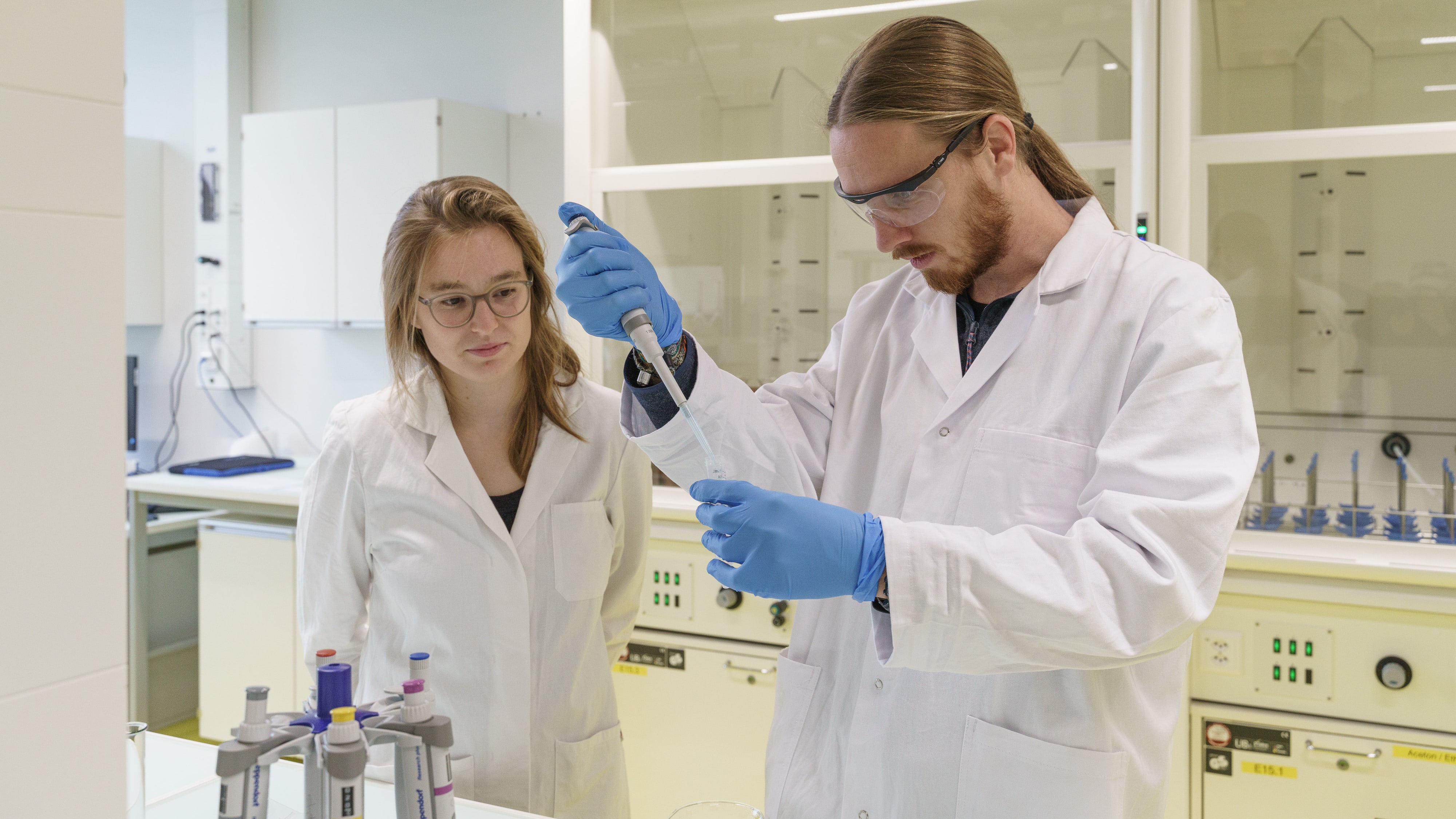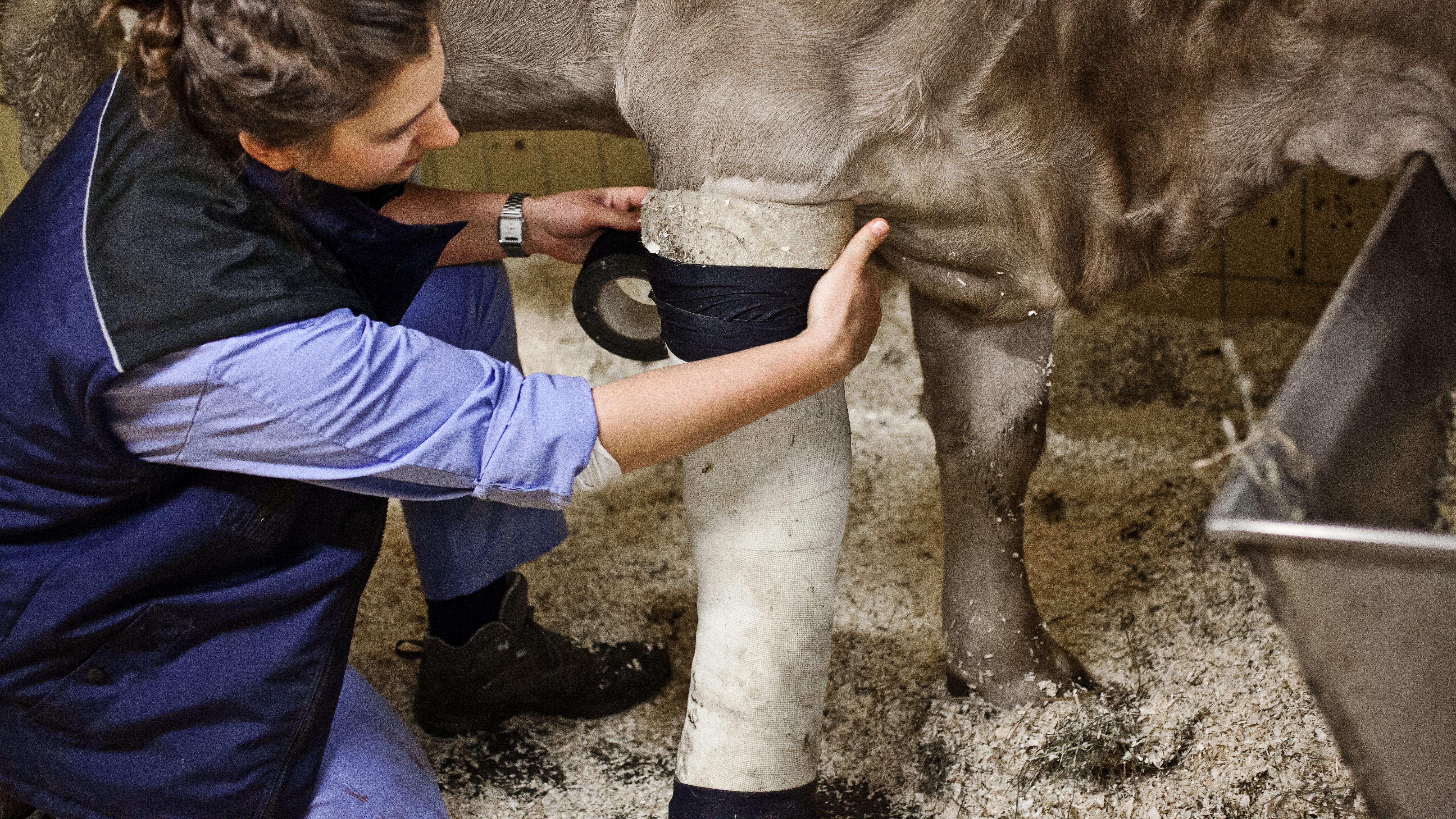Horizontal and vertical networking offer significant advantages for advancing the knowledge system in livestock science and agricultural practice. At AgroVet-Strickhof, forward-looking research and education are carried out in the domain of livestock.
University teaching - agricultural and veterinary education
In the area of university teaching, AgroVet-Strickhof is used for the training of students of the Vetsuisse Faculty UZH as well as for students of agricultural, food and environmental sciences at ETH Zurich.
The prospective veterinarians practice on farm animals and horses what they have learned in theory in the areas of anatomy, physiology, pathology and preventive and therapeutic interventions related to nutrition, digestion, excretion, respiration, reproduction, sensory and motor control, blood circulation and endocrine control and homeostasis.
Prospective agricultural scientists, food scientists, and environmental scientists use AgroVet-Strickhof for hands-on training on farm animals, focusing on feeding, husbandry, and the production of animal foods from cattle, pigs, and poultry, as well as their environmental impact.
Knowledge of the interactions of livestock, plants and soils in terms of nutrient cycles, biodiversity and greenhouse gas emissions is also taught. AgroVet-Strickhof, with its various farm sites and production branches, also offers students of agricultural sciences at ETH Zurich and veterinary medicine at UZH the opportunity to complete internships and to conduct their bachelor's and master's theses at one of AgroVet-Strickhof's sites.
Agricultural education and training as well as consulting services
Strickhof is the Swiss-German center of excellence for education and services in agriculture and the food industry. In various courses in agriculture, animal professions, horticulture and viticulture, food technology, home economics and health, basic vocational training is imparted. Based on this, there are offers of structured professional further education (higher technical school, training to become a farm manager). The vocational school is geared towards students from agriculture, forestry, horticulture and the food industry.
Strickhof provides services and consulting for agricultural businesses. This activity creates close contact and exchange with agricultural practice.
The existing livestock is used for professional training for demonstration purposes and consolidation of practical activities (for example, claw care, milking). The farm offers the opportunity to put production-related issues into practice. This is used by teaching and consulting staff as well as by graduates of the higher technical college. For them, the planning, execution and presentation of their own experiment is part of the training concept.


